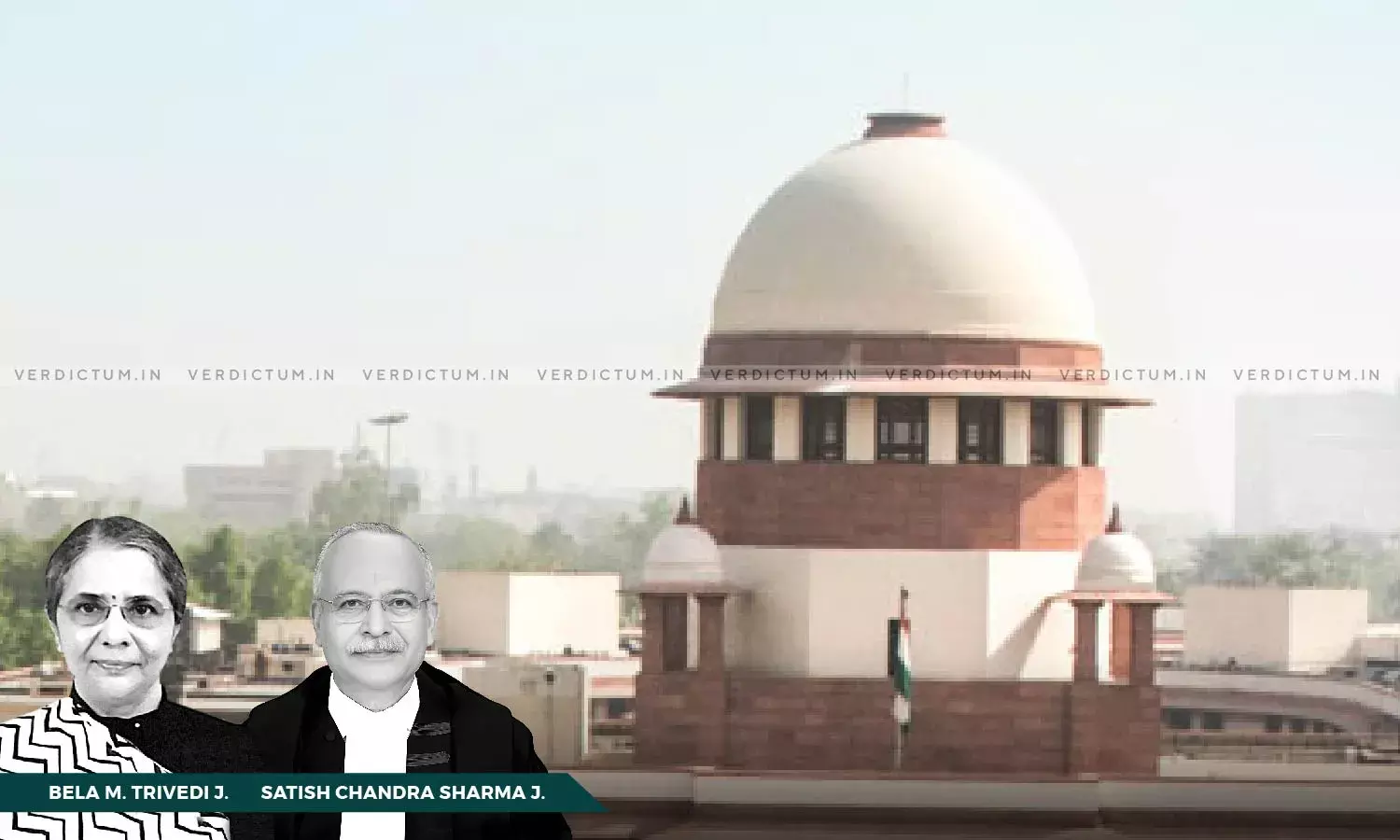Supreme Court: Merely Because IBC Is Silent Regarding Resolution Plan’s Implementation, Neither Tribunal Nor Courts Should Give Excessive Leeway To Resolution Applicant
The Supreme Court allowed Civil Appeals filed against the NCLAT's Judgment in the Company Appeals filed by various parties.

The Supreme Court held that merely because the Insolvency and Bankruptcy Code, 2016 (IBC) is silent regarding the phase of implementation of the Resolution Plan by the Successful Resolution Applicant, neither the Tribunal nor the Courts should give excessive leeway to the Successful Resolution Applicant.
The Court held thus in a batch of Civil Appeals filed against the Judgment of the National Company Law Appellate Tribunal (NCLAT), New Delhi in the Company Appeals filed by various parties.
The two-Judge Bench comprising Justice Bela M. Trivedi and Justice Satish Chandra Sharma observed, “… it is quite clear that merely because the Code is silent with regard to the phase of implementation of the Resolution Plan by the Successful Resolution Applicant, neither the Tribunal nor the Courts should give excessive leeway to the Successful Resolution Applicant to act in flagrant violation of the terms of the Resolution Plan or in a lackadaisical manner. In the instant case, SRA/JSW did not implement the Resolution Plan for about two years since its approval by the NCLAT, though there was no legal impediment in implementing the same. Such flagrant violation of the terms of the Resolution Plan, has frustrated the very object and purpose of the Code.”
The Bench reiterated that the Resolution Plan, after its approval by the Adjudicating Authority i.e., NCLT under Section 31, is binding not only to the Corporate Debtor, its employees, members, creditors, and the Government authorities but also to all the stakeholders including the successful Resolution Applicant itself.
Senior Advocate Dhruv Mehta appeared on behalf of the Appellants while Senior Advocates Neeraj Kishan Kaul and Abhishek Manu Singhvi appeared on behalf of the Respondents.
Brief Facts
The lead Appeal was filed by the Kalyani Transco, an operational creditor of the Corporate Debtor M/s. Bhushan Power and Steel Limited (BPSL), challenging the Judgment and Order passed by the NCLAT in a Company Appeal. The CIRP proceedings were triggered against BPSL at the instance of Punjab National Bank (PNB) which filed a Company Petition before the NCLT under the provisions of the IBC. The Interim Resolution Professional (IRP) invited claims from all the stakeholders and the Committee of Creditors (CoC) confirmed the appointment of IRP as the Resolution Professional (RP). Pursuantly, certain litigations – Applications/Appeals were filed before the Tribunals wherein certain Orders were passed.
Thereafter, the RP having received a requisition from some of the Banks, he called for a meeting of CoC for consideration and approval of Consolidated Resolution Plan. The e-voting resulted in the approval of the Consolidated Resolution Plan and the RP filed a Company Application. The CBI registered an FIR against BPS, its Directors and others under Section 120B read with Sections 420, 468, 471, and 477A IBC and Section 13(2) read with Section 13(1)(d) of the Prevention of Corruption Act (PC Act). The Enforcement Directorate (ED) registered a case under the Prevention of Money Laundering Act, 2002 (PMLA). The NCLT vide the common Judgment, dismissed the same. Several Company Appeals were also filed before the NCLAT, which approved the NCLT’s Judgment subject to some modifications/clarifications. Hence, the case was before the Apex Court.
Reasoning
The Supreme Court in view of the above facts, noted, “The changing stance of CoC in the present proceedings also smacks of its bona fides and raises serious doubts about the exercise of its so-called commercial wisdom. … If the Resolution Plan does not comply with such mandatory requirements and such plan is approved by the CoC, it could not be said that the CoC had exercised its commercial wisdom while approving such Resolution Plan.”
The Court was of the opinion that nobody should be permitted to misuse the Process of law nor should be permitted to take undue advantage of the pendency of any proceedings in any Court or Tribunal.
“Instituting vexatious and frivolous litigations in the NCLT or NCLAT and delaying the implementation of Resolution Plan under the garb of pendency of proceedings, has clearly proved the mala fide and dishonest intention on the part of JSW, in firstly securing highest score making misrepresentation before CoC and then not implementing the same under the garb of pendency of proceedings, though the Resolution Plan was supposed to be an unconditional one”, it added.
The Court further said that an illegality of any nature cannot be permitted to be perpetuated, and a plea of fait accompli cannot be permitted to be raised by any party to cover up their illegal acts, after achieving the ill motivated intentions circumventing the law.
“It may be noted that any contravention of the terms of the approved Resolution Plan, by any person on whom such plan is binding under Section 31, is liable to be prosecuted and punished under sub-section (3) of Section 74 of the IBC. It is also further required to be noted that in view of Section 33, where the Adjudicating Authority, before the expiry of the insolvency resolution process period or the maximum period permitted for completion of corporate insolvency resolution process under Section 12, does not receive a Resolution Plan under Sub-section (6) of Section 30; or rejects the Resolution Plan under Section 31 for the non-compliance of the requirements specified therein, it has to pass an order requiring the Corporate Debtor to be liquidated in the manner as laid down in Chapter III of the IBC”, it also enunciated.
Accordingly, the Apex Court allowed the Appeals and quashed the Judgments of the Tribunals.
Cause Title- Kalyani Transco v. M/s. Bhushan Power and Steel Ltd. & Ors. (Neutral Citation: 2025 INSC 621)


